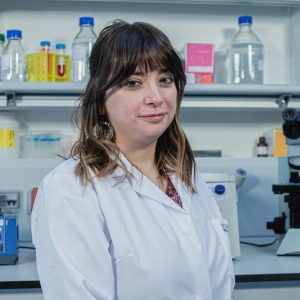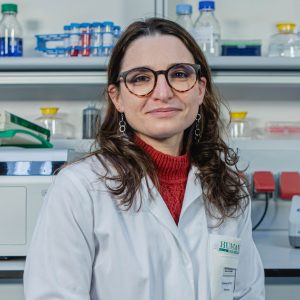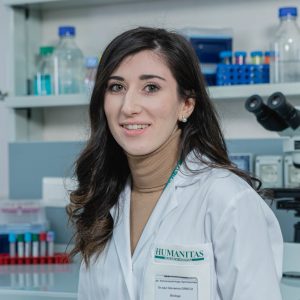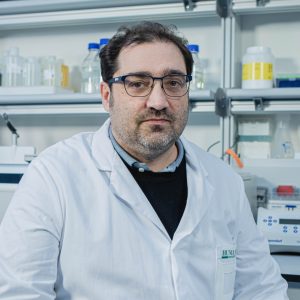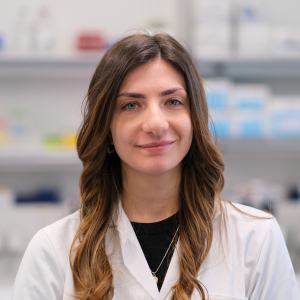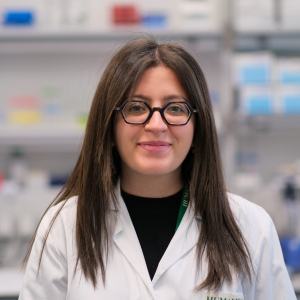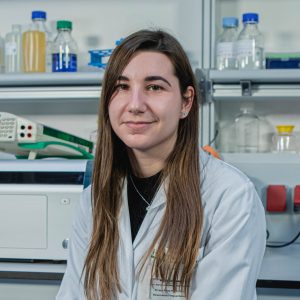Research Group
Jaillon Group
Innate Immunity in Inflammation and Cancer Lab
Our lab aims at uncovering the role played in health and disease by the most abundant – and yet still misunderstood – white blood cells in the human blood, the neutrophils, with the final aim of identifying new therapeutic targets against cancer. In addition, our laboratory is investigating the biology of unconventional αβ T cells (UTCαβ) with anti-tumor activity.
The challenge
Neutrophils are the most abundant circulating white blood cells in humans, accounting for 50–70% of the total leukocytes. However, neutrophils are “unsung heroes” in immunology and they have long been disregarded as short-lived effector cells with activities restricted to the acute inflammatory response and to the elimination of extracellular pathogens. Our group participated in the revision of this dogma, revealing that neutrophils are important players in the activation and regulation of both innate and adaptive immune responses. We defined a neutrophil-UTCαβ axis important for resistance against selected tumors. The role played by neutrophils and UTCαβ in health and diseases, including in cancer, remains poorly understood but a deeper insight into their diversity and role in anti-tumor responses could uncover new potential targets for cancer therapy.
Main research areas
Dynamics, heterogeneity and plasticity of neutrophils in cancer
A deep and accurate analysis of tumor-associated neutrophils (TANs) would allow to determine the molecular mechanisms triggering the neutrophil-dependent anti-tumor response. Using state-of-the-art technology including transcriptomic analysis, imaging mass cytometry and flow cytometry we will determine the dynamics of neutrophil recruitment and polarization in different tumors, including carcinogenesis, genetically engineered mouse models of cancer and models of metastasis. In addition, we will explore the role of neutrophils in immunotherapy and define their underestimated significance, plasticity and role in human cancer.
Heterogeneity, population and clinical significance of double negative T cells in cancer
We recently unveiled (Cell, 2019) a novel axis in antitumor immunity, in which neutrophils regulated the polarization of a poorly understood subset of unconventional T cells. Using a genetic approach complemented by adoptive cell transfer, we found that neutrophils were essential for the activation of an interferon-γ-dependent pathway of anti-tumor immune resistance, associated with polarization of a subset of CD4- CD8- UTCαβ. We operationally called these cells double negative TCRβ+ T cells. These cells possess an innate-like phenotype and antitumor potential in vivo. We aim to dissect their biology and immunobiology and to unveil the mechanisms sustaining their activation and anti-tumor activity. We will study their potential role in therapy and their clinical significance.
Selected publications
Complement activation promoted by the lectin pathway mediates C3aR-dependent sarcoma progression and immunosuppression.
Antagonistic Inflammatory Phenotypes Dictate Tumor Fate and Response to Immune Checkpoint Blockade.
Neutrophil diversity and plasticity in tumour progression and therapy.
Neutrophils Driving Unconventional T Cells Mediate Resistance against Murine Sarcomas and Selected Human Tumors.
IL-1R8 is a checkpoint in NK cells regulating anti-tumour and anti-viral activity.
Occurrence and significance of tumor-associated neutrophils in patients with colorectal cancer.
PTX3 is an extrinsic oncosuppressor regulating complement-dependent inflammation in cancer.
The humoral pattern recognition molecule PTX3 is a key component of innate immunity against urinary tract infection.
Prototypic long pentraxin PTX3 is present in breast milk, spreads in tissues, and protects neonate mice from Pseudomonas aeruginosa lung infection.
Neutrophils in the activation and regulation of innate and adaptive immunity.
CCR7 is involved in the migration of neutrophils to lymph nodes.
Endogenous PTX3 translocates at the membrane of late apoptotic human neutrophils and is involved in their engulfment by macrophages.
The humoral pattern recognition receptor PTX3 is stored in neutrophil granules and localizes in extracellular traps.
Group members
